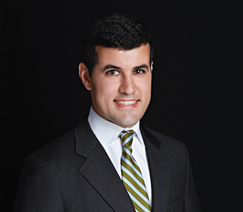Charles Michael is a partner at Brune & Richard LLP in New York and is the editor of the SDNY Blog, available here.
In an opinion Monday, Judge Jed Rakoff of the U.S. District Court for the Southern District of New York became the second federal judge to endorse a broad interpretation of the Financial Institutional Reform, Recovery, and Enforcement Act (“FIRREA”) that will make it easier for the federal government to pursue bank misconduct.
FIRREA was adopted in the wake of the savings and loan scandals of the late 1980s, and allows the federal government to pursue civil charges against those who commit crimes like mail or wire fraud “affecting a federally insured financial institution.” FIRREA is a powerful tool because the government needs to meet only the civil standard of proof, and because its statute of limitations is 10 years.
In the case before Judge Rakoff, the government charged Countrywide and Bank of America with misrepresenting the quality of loans sold to Fannie Mae and Freddie Mac. There is no dispute that neither Fannie Mae nor Freddie Mac are “federally insured financial institutions” under FIRREA, but the government argued that the conduct affected Bank of America itself — a federally insured financial institution.
The defendants disputed the “self-affecting” theory because it had never been adopted before and because “[i]t would be particularly unnatural to refer to ‘fraud affecting’ a person to mean fraud by that person.” They also argued that the government’s theory was “breathtakingly broad” because “every mail or wire fraud allegation against a financial institution would state a claim under FIRREA, transforming a statute intended to protect financial institutions into one that penalizes them.” Congress could not have intended this result, they argued, because “FIRREA includes an entirely separate system of regulatory penalties for misconduct by financial institutions and affiliated individuals.”
After briefing, Judge Lewis Kaplan, also of the Southern District of New York, adopted the government’s theory in a separate case:
“Affect” means “to act upon” as in “to produce an effect . . . upon,” “to produce a material influence upon or alteration in,” or possibly “to have a detrimental influence on.” None of these definitions comes even close to defendants’ notion that “affecting” may mean only “victimizing.” If Congress had wanted to limit civil penalties to cases in which the financial institution was the victim, it obviously could have done so; instead, it chose a singularly broad term.
During the argument before Judge Rakoff, it appeared as if he might disagree with Judge Kaplan. Judge Rakoff twice stated he was “troubled” by the “self-affecting” reading of FIRREA. In questioning the government, Judge Rakoff summarized the defendants’ argument as follows: “They say it can’t be ‘affect’ applies to the perpetrator because it’s not the natural meaning or the sense of a sentence in the ordinary discourse that one would say that a fraudulent scheme affects the perpetrator of the fraudulent scheme. They’re saying that’s a very funny kind of way to read it.”
Notwithstanding those comments, in his decision Monday, Judge Rakoff decided that the plain text of the statute sufficed to endorse the “self-affecting” theory:
Although the parties spend endless pages discussing each of these theories in terms of legislative history, policy considerations, and the like, in the Court’s view validation of the [self-affecting] theory — that it is enough that the fraud affected BofA– requires nothing more than straightforward application of the plain words of the statute. The key term, “affect,” is a simple English word, defined in Webster’s as “to have an effect on.” See Webster’s New World Collegiate Dictionary 23 (4th ed. 2002). The fraud here in question had a huge effect on BofA itself (not to mention its shareholders). The Amended Complaint itself alleges that BofA has paid billions of dollars to settle repurchase claims by Fannie Mae and Freddie Mac made a result of the fraud here alleged. See Am. Compl. ¶¶ 149-50. The defendants’ endlessly complicated argument[s] . . . [t]hough clever . . . are utterly unconvincing, for the simple reason that they cannot explain away the plain language of [FIRREA].
The upshot is that the government will likely be able to pursue civil charges against federally insured financial institutions (whose misconduct in most cases would affect themselves) for conduct going back 10 years (the limitations period). Thus, for example, conduct leading into or during the financial crisis could be the subject of FIRREA claims for several more years to come.
 Sky Blog
Sky Blog

